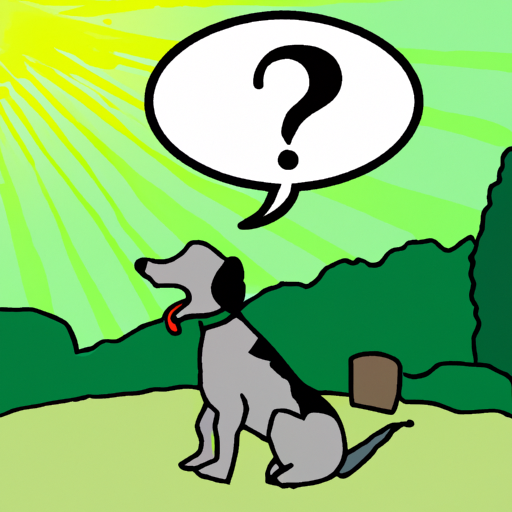As a dedicated caregiver who loves their pet, you may have often wondered why your dog howls during the day. This article aims to explore the reasons behind this behavior, and provide you with useful tips to help manage it.
H2: Understanding Canine Communication
Dogs use a variety of sounds to communicate, including barks, growls, whines, and howls. Each of these sounds serves a distinct purpose and is used in different situations.
- Barks: Often used to alert others or express excitement.
- Growls: Usually signal fear, discomfort, or aggression.
- Whines: Indicate stress, anxiety, or a desire for attention.
- Howls: A form of long-distance communication.
Howling, in particular, is a deeply ingrained behavior that stems from dogs’ ancestral ties to wolves.
H2: Reasons Dogs Howl During the Day
Dogs may howl during the day for a variety of reasons. The following are some of the most common causes:
-
Attention Seeking: Dogs often howl to get your attention. If you respond every time your dog howls, they may learn to associate howling with receiving attention or rewards.
-
Response to Sounds: Many dogs howl in response to certain sounds, such as sirens, music, or the howls of other dogs.
-
Separation Anxiety: If your dog howls when you’re not home, it could be a sign of separation anxiety.
-
Injury or Illness: In some cases, dogs may howl due to physical discomfort or illness.
| Possible Reason | Signs |
|---|---|
| Attention Seeking | Howls when you’re busy or not paying attention |
| Response to Sounds | Howls in response to specific noises |
| Separation Anxiety | Howls when left alone |
| Injury or Illness | Shows other signs of distress or discomfort |
H2: How to Respond to Daytime Howling
Responding appropriately to your dog’s howling is crucial. Here are four strategies you can employ:
-
Ignore Unwanted Howling: If your dog is howling for attention, make sure not to reward this behavior.
-
Distract and Redirect: Use toys, treats, or games to distract your dog when they start to howl.
-
Provide Mental Stimulation: Keep your dog mentally engaged with puzzles, training, and playtime.
-
Consult a Veterinarian or Behaviorist: If your dog’s howling is excessive or unexplained, it’s worth seeking professional advice.
H2: Preventing Daytime Howling
Preventing daytime howling is often a matter of understanding your dog’s needs and ensuring they are met. Here are some tips:
- Provide plenty of physical and mental stimulation.
- Stick to a consistent daily routine.
- Use positive reinforcement to encourage quiet behavior.
- Seek professional help if necessary.
H2: Frequently Asked Questions
Q: Can howling be a sign of a medical problem?
A: Yes, sometimes howling can indicate discomfort, illness, or injury. If you’re concerned, consult a vet.
Q: Is it normal for dogs to howl when they hear sirens?
A: Many dogs howl in response to high-pitched sounds like sirens. This is generally normal behavior.
Q: How can I stop my dog from howling when I’m not home?
A: This could be a sign of separation anxiety. Try providing a comforting item, like a piece of clothing that smells like you. If the problem persists, consider seeking help from a professional.



